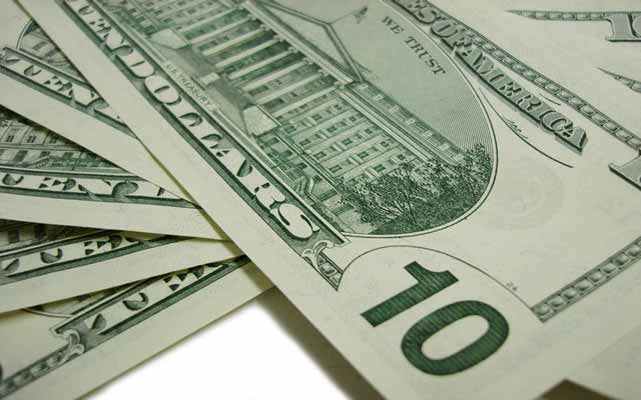Pound Sterling Rises vs Euro, Dollar on Firm UK Retail, Steady Jobs
- Written by
James Fuller

Pound Sterling gained ground against the Euro and US Dollar on Tuesday, helped by a combination of steady retail activity and a stronger-than-expected set of labour market numbers. The move left the British Pound trading at 1.15879 against the Euro and 1.3461 against the US Dollar, both up 0.21 percent on the day.
The British currency was also firmer against the Australian dollar (+0.53%), New Zealand dollar (+0.44%), and the yen (+0.39%), while slipping slightly against the Swiss franc (-0.11%) and South African rand (-0.04%).
Barclays Research called the jobs figures “broadly positive,” noting that average weekly earnings grew by 4.6% in the three months to June, a touch below market forecasts, while employment rose by 238,000, comfortably ahead of the 185,000 expected.
“The unemployment rate held steady at 4.7%, and private earnings ex-bonus remained resilient at 4.8%,” the bank said. It added that the data “sits neatly with the Bank of England’s hawkish tone last week” and had prompted a small retreat in euro-pound, which dipped around 0.2% to 0.8640 as traders trimmed short positions.
On the retail side, Elliott Jordan-Doak at Pantheon Macroeconomics highlighted that July’s BRC survey still pointed to solid activity.
“Total sales values rose 2.5% year-over-year, with food sales outperforming non-food,” he said, adding that the broader picture of spending remains healthy despite a slowdown in like-for-like growth and a drop in footfall.
Lloyds Bank analysts observed that the moderation in pay growth and the emergence of labour market slack were largely tracking the Bank of England’s expectations.
“Employment is declining but at a less extreme pace than many surveys suggested might be the case,”
they noted, suggesting that inflation data is likely to carry more weight in near-term policy calls.
James Smith at ING said the relatively small fall in payrolls during July, just 8,000, might indicate that the worst of the downturn is now over.
“This tallies with business surveys which suggest hiring appetite has begun to improve after a torrid spring,”
he said, though he cautioned that vacancy numbers remain well below pre-pandemic levels.
The combination of steady consumer spending and a labour market that is cooling more gradually than feared gave sterling an extra lift in afternoon trade.
STORY LINK Pound Sterling Rises vs Euro, Dollar on Firm UK Retail, Steady Jobs

Pound Sterling gained ground against the Euro and US Dollar on Tuesday, helped by a combination of steady retail activity and a stronger-than-expected set of labour market numbers. The move left the British Pound trading at 1.15879 against the Euro and 1.3461 against the US Dollar, both up 0.21 percent on the day.
The British currency was also firmer against the Australian dollar (+0.53%), New Zealand dollar (+0.44%), and the yen (+0.39%), while slipping slightly against the Swiss franc (-0.11%) and South African rand (-0.04%).
Barclays Research called the jobs figures “broadly positive,” noting that average weekly earnings grew by 4.6% in the three months to June, a touch below market forecasts, while employment rose by 238,000, comfortably ahead of the 185,000 expected.
“The unemployment rate held steady at 4.7%, and private earnings ex-bonus remained resilient at 4.8%,” the bank said. It added that the data “sits neatly with the Bank of England’s hawkish tone last week” and had prompted a small retreat in euro-pound, which dipped around 0.2% to 0.8640 as traders trimmed short positions.
On the retail side, Elliott Jordan-Doak at Pantheon Macroeconomics highlighted that July’s BRC survey still pointed to solid activity.
“Total sales values rose 2.5% year-over-year, with food sales outperforming non-food,” he said, adding that the broader picture of spending remains healthy despite a slowdown in like-for-like growth and a drop in footfall.
Lloyds Bank analysts observed that the moderation in pay growth and the emergence of labour market slack were largely tracking the Bank of England’s expectations.
Save on Your GBP/EUR Transfer
Get better rates and lower fees on your next international money transfer. Compare TorFX with top UK banks in seconds and see how much you could save.
they noted, suggesting that inflation data is likely to carry more weight in near-term policy calls.
James Smith at ING said the relatively small fall in payrolls during July, just 8,000, might indicate that the worst of the downturn is now over.
“This tallies with business surveys which suggest hiring appetite has begun to improve after a torrid spring,”
he said, though he cautioned that vacancy numbers remain well below pre-pandemic levels.
The combination of steady consumer spending and a labour market that is cooling more gradually than feared gave sterling an extra lift in afternoon trade.
International Money Transfer? Ask our resident FX expert a money transfer question or try John's new, free, no-obligation personal service! ,where he helps every step of the way, ensuring you get the best exchange rates on your currency requirements.
TAGS: Pound Sterling Forecasts
Comments are currrently disabled
Related Stories:
- Pound Sterling Setback into 2026 - January 2, 2026
- Pound Sterling Dips vs Euro and Dollar as "December Rate Cut Coming" - November 11, 2025
- Pound Sterling: Bank of England Cutting Cycle "set to Extend" - November 7, 2025
- Pound Sterling Forecasts Warn Crash vs Euro, Dollar on 1976-Style UK Crisis - August 22, 2025
- GBP/USD Forecast: Pound Sterling Flat despite Downbeat Market Mood - August 19, 2025
- Pound Sterling Firms as UK GDP Beats Forecasts - August 14, 2025
- Pound Sterling Rises vs Euro, Dollar on Firm UK Retail, Steady Jobs - August 12, 2025
- British Pound and Euro Fall Against Dollar on Strong Headline US GDP - July 30, 2025
- Pound Sterling Higher Against Euro and Dollar on UK Wages Beat - July 17, 2025
Latest News:
- GBP/USD Price Forecast: Pound Sterling Climbs after Trump Address - February 25, 2026
- Pound-to-Euro Rate Flat after Mixed German Data - February 25, 2026
- British Pound to Euro Forecast: Bailey’s Caution Lifts GBP Above 1.1450 - February 25, 2026
- Pound Sterling to Dollar Forecast: GBP Above 1.35 on US Trade Chaos - February 25, 2026
- Pound Sterling Capped after Dovish Bailey Remarks - February 24, 2026
- Pound-to-Euro Volatile - February 24, 2026
- British Pound to Euro Forecast: BoE Testimony, By-Election Risks Ahead - February 24, 2026
- Pound to Dollar Forecast: GBP Reclaims 1.35 as Tariff Chaos Hits USD - February 24, 2026
- Pound to Euro Firms - February 23, 2026
- GBP/USD Forecast: Pound Sterling Firm but Political Risks Linger - February 23, 2026









